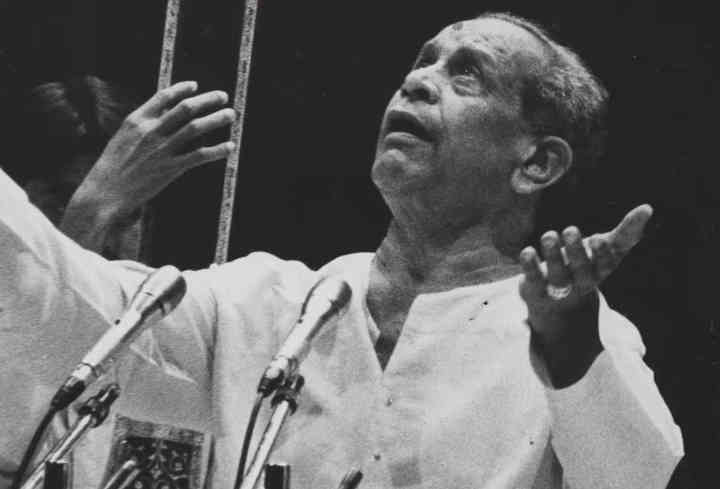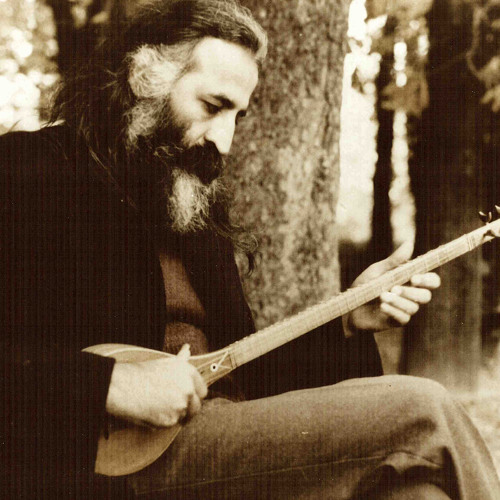Monologic emotion within the music of dialogue
Inexhaustible wells of sadness

If the reader would like to experience a more visceral representation of the power of narrative consciousness and what I mean by reflexive dialogue, may I recommend the Indian vocal tradition. There are threads running through southern Carnatic music reaching back unbroken to the last African migration - the people who stayed in India rather than continue on to Australia 40,000 years ago: listen to the ghatam to hear them. But it's in the northern vocalists that the magic of dialogue reaches its full pitch: in the Khyal schools especially, they talk to their feelings, they build them as slowly as possible, they work circularly to build an unassailable emotional foundation from which to rise. Jasraj or Bhimsen Joshi can demonstrate mastery of the endogenous processes of emotion: invocation, gentle repetition, a swaying variance, the willingness to allow the impact of silence, the maturity not to need to show off at every opportunity, the patience to allow the feeling to develop and build in its own time, the assurance that inspiration will come... Everything a good musician learns, demonstrated over the course of a structured thirty minute improvisation.
I once had the good fortune to see Mohammad Reza Lotfi in concert. There is a long history of mutual influence such that the Khyal and Sufi schools are not so distant in aims and means: this is not just "holy" music, as though we were to feel nothing but our vain wishfulness. This tradition exploits the inexhaustible wells of sadness which inevitably accumulate in old civilizations, not just as spice and roundness, but a depth from which to look up: as though peering through an accumulated haze of futility, the stars are allowed to burn ever brighter and more passionately. It's as though they know how to stretch the poles between every feeling, to allow them breath and breadth, to open the pores of the immediate moment and show you something new right where you have overlooked a thousand times. That, my friends, is also the gift of meditative discipline.

Want to hear something strange? The first analogue I think of in Western music, is in the best heavy metal: that throbbing, all-consuming, all-embracing, all-annihilating rage, which seeks its redemptive ecstasy in violence and terror. I saw High on Fire in concert once, and as incongruous as it may seem to compare a screaming, sweat-drenched stoner to a swaying Sufi reciting Hafez like a cosmic lullaby, I see a similarity in the approach to the emotional problem: how do we feel every bit of what we need to feel, lose our expectations of outcome, yet know exactly where we are at every moment such that we always stick the landing?


